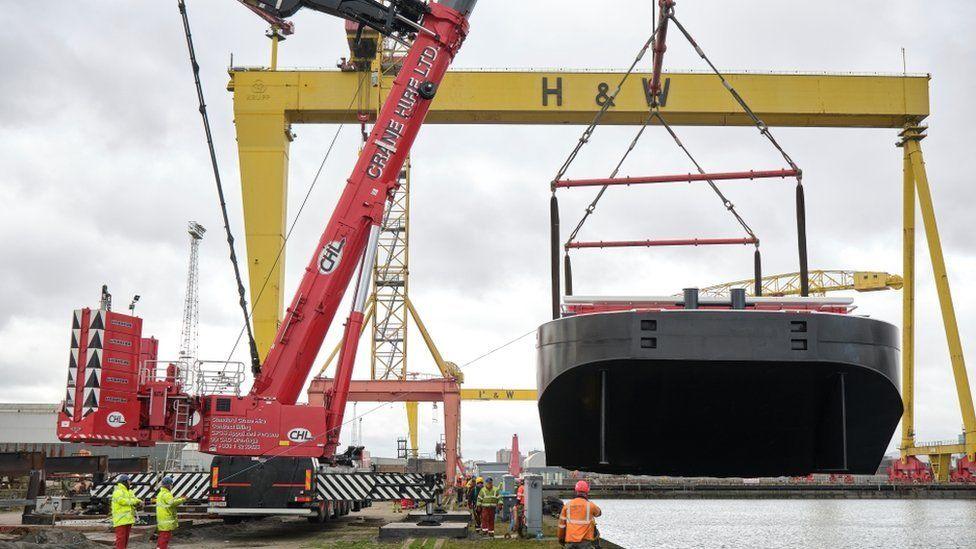Shipyard support was ‘too risky for taxpayers’
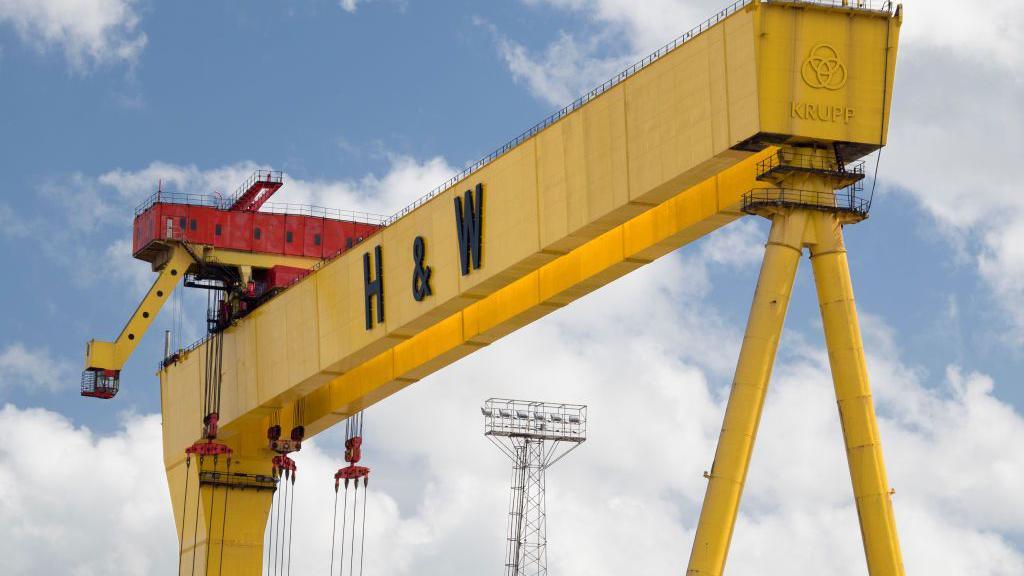
Harland and Wolff employs about 1,500 people, mainly in Belfast
- Published
Offering financial support to Harland and Wolff meant "a very substantial risk that taxpayer money would be lost", the government has said.
The loss-making shipbuilder had applied for a loan guarantee of up to £200m.
It would have allowed the company to borrow money with the government acting as guarantor.
However, if the loans were to go bad the government would have had to step in to repay the lenders.
In a written statement the Business Secretary, Jonathan Reynolds, said: "This decision was based on a comprehensive assessment of the company’s financial profile and the criteria set out in our risk policies.
"We have also decided not to provide any form of emergency liquidity funding.
"The Government believes, in this instance, that the market is best placed to resolve the commercial matters faced by Harland and Wolff."
'Pragmatic solutions'
On Friday the company revealed its bid for state support had been unsuccessful and that its chief executive had left his job.
The company is now in talks with its lender, Riverstone, and is hopeful of agreeing additional funding within days.
Mr Reynolds said that in the government’s engagement with Riverstone the firm had "recognised the importance of the assets at Harland and Wolff as well as the people who work there, showing a desire to find pragmatic solutions that support government objectives."
"I welcome potential new financing for Harland and Wolff and the appointment of new management and wish them all the best in their continued efforts to build up this business."
There are still questions about Harland and Wolff’s long-term future.
The company’s shares are currently suspended after it failed to file audited accounts on time.
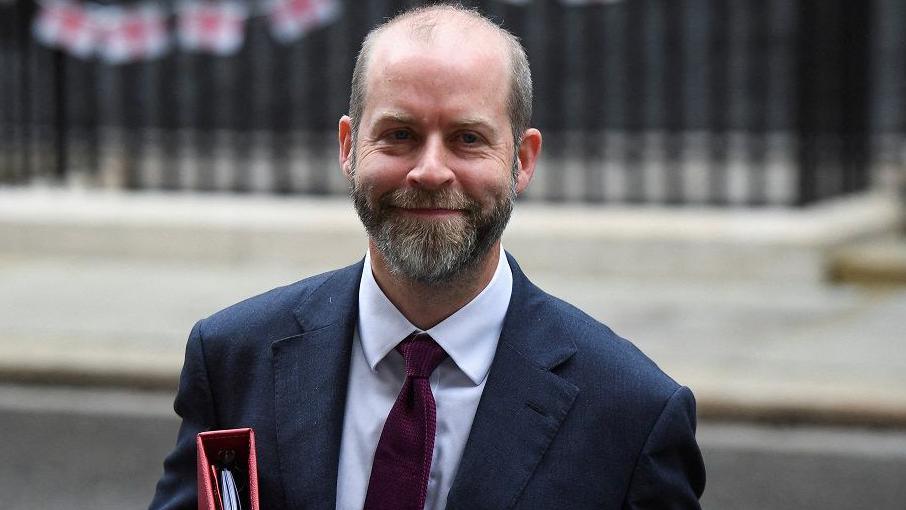
Jonathan Reynolds said the government had also decided "not to provide any form of emergency liquidity funding"
It has appointed Rothchilds bank to review strategic options which could include a sale of the business.
Its main operation is in Belfast and it also has yards at Appledore in the west of England and at Methil and Arnish in Scotland.
In 2023 it was part of a consortium which won a major contract to build three Royal Navy support ships.
The company has had to invest significantly to prepare for that work which has contributed to its large losses.
It had also taken on loans from Riverstone which charge a high rate of interest.
It had hoped to use a government guarantee to refinance those loans at a lower interest rate and take on more borrowing.
Mr Reynolds said Harland and Wolff remains "a key subcontractor" on the naval contract and the Ministry of Defence is "well engaged" with the prime contractor, Navantia, to monitor delivery of the project .
'Worrying times'

George Brash from Unite hopes that a buyer will take over
Unite represents the majority of the workforce at the company.
George Brash, from the union, called on somebody to take over the business who has shipbuilding in "their heart" and not someone who wants "to make a quick profit".
"There’s always been a question mark over the yard... but we are actually confident that a viable bidder will come in," he said.
"It's a good business that have contracts current and future, so the potential is there. They’re a highly skilled workforce. It’s a historic site and we’re confident we can get buyers in," he added.
Meanwhile, Matt Roberts, from The GMB Union, said "these are worrying times for workers and their families."
"These yards must be saved and their long-term sustainable future secured," he added.
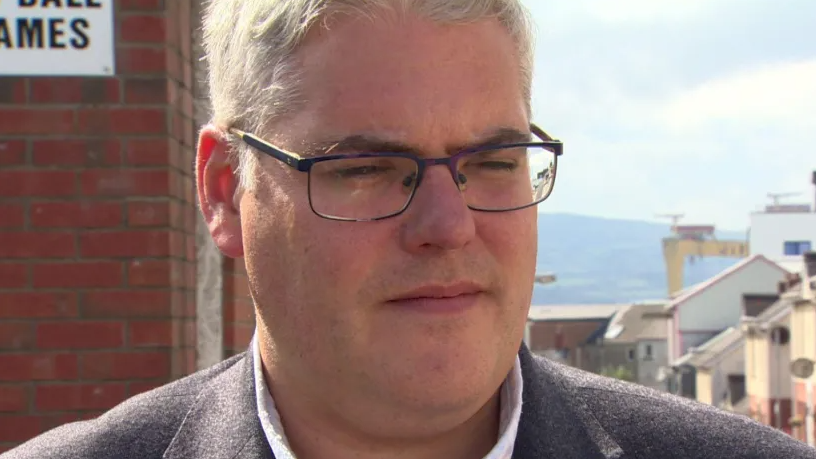
Gavin Robinson MP welcomed the clarity the government's statement brought
East Belfast MP Gavin Robinson said he welcomed the clarity that the government's statement brings in terms of why a loan guarantee is not being offered.
"It is important that workers are clear as to the reasons behind the decision, given inaccurate and unhelpful distractions by some in recent days," he said.
"We now look ahead with the clear assurance that government remain committed to existing contracts awarded to Harland and Wolff, and to building a vibrant and successful shipbuilding industry in Belfast."
'You've got to be confident'
Speaking on Radio Ulster's Evening Extra programme, the chief executive of Manufacturing NI, Stephen Kelly, described the news as "disappointing", but said "you've got to be confident".
"There’s no doubt about it, there’s potential here that the whole thing could come crashing down," he said.

Chief executive of Manufacturing NI Stephen Kelly
"At the core of this are 600 people here in in Belfast that have world class skills; skills that cannot be replicated and easily produced elsewhere."
"There’s the potential here that it could be split up. There’s the potential here that someone could come in and not invest in the business, but the opportunity is something that entrepreneurs often focus on... and that opportunity is just within arm’s reach," he added.
- Published17 July 2024
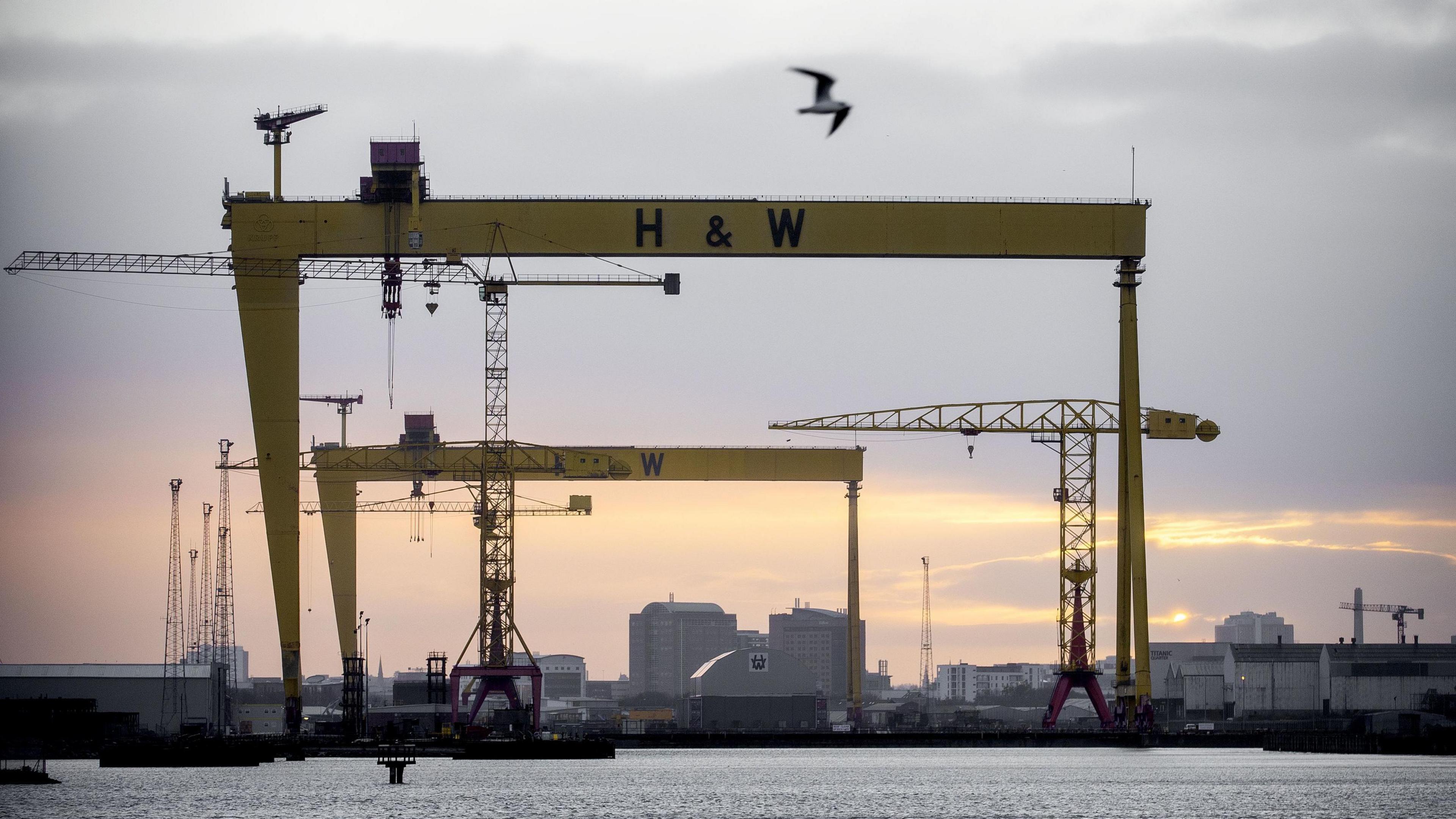
- Published15 May 2024
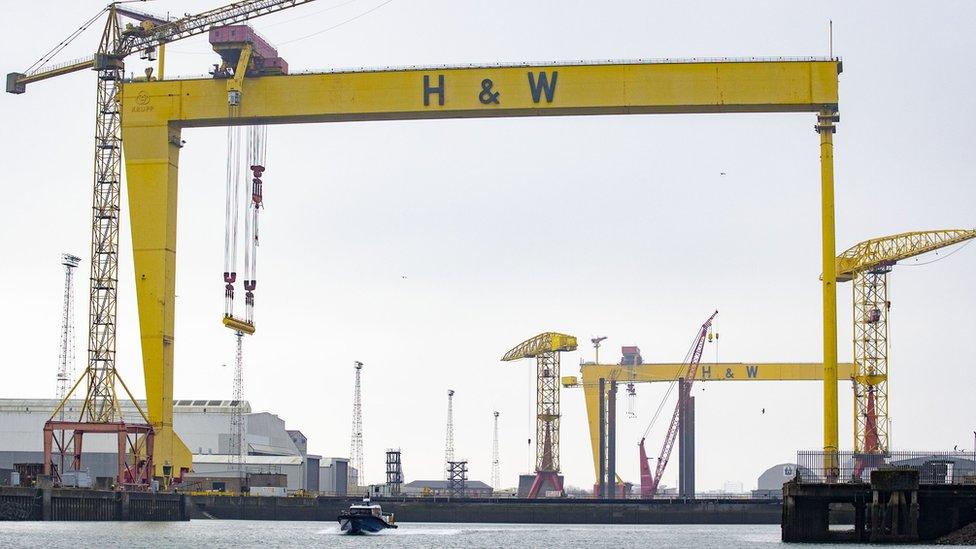
- Published1 July 2024
